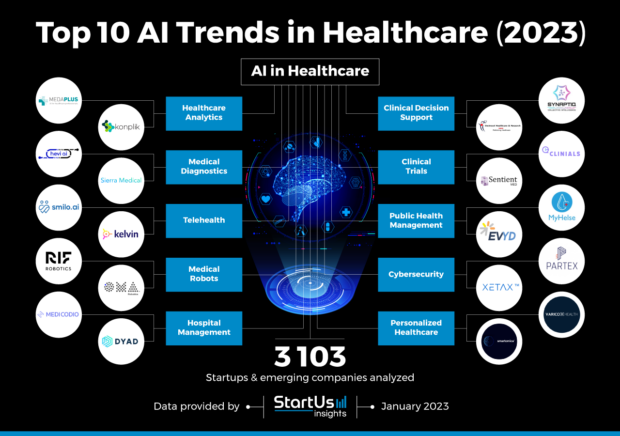Quick Overview
Executives from various healthcare sectors shared their perspectives on the evolving role of artificial intelligence (AI) in healthcare by 2025. They highlighted advancements in multimodal technology, diagnostic imaging, and automation, emphasizing the importance of trust and integration into existing workflows.
Key Predictions and Insights
- Advancements in Multimodal AI: Experts anticipate significant progress in AI’s ability to process and understand various forms of data, including text, images, audio, and video.
- Improved Diagnostic Imaging: AI is expected to enhance diagnostic accuracy by helping radiologists detect subtle abnormalities that may be missed by the human eye.
- Addressing Provider Burnout: AI tools are seen as a solution to alleviate administrative burdens on healthcare providers, potentially reducing burnout and improving job satisfaction.
- Streamlined Drug Development: AI’s role in drug discovery and development is anticipated to grow, helping pharmaceutical companies bring effective new treatments to market more efficiently.
- Integration Challenges: Despite the potential benefits, skepticism remains regarding AI’s clinical adoption due to concerns over data privacy, misaligned incentives, and the need for evidence-based validation.
Executive Perspectives
- Dr. Michael Howell (Google): Emphasized the importance of multimodal AI and the need for evidence from real-world healthcare settings to understand its effectiveness.
- Roland Rott (GE HealthCare): Highlighted AI’s potential to improve diagnostic imaging quality, aiding clinicians in making quicker and more accurate diagnoses.
- Lisa Suennen (American Heart Association Ventures): Expressed concerns about the slow integration of AI into clinical settings, citing fear and discomfort with data as barriers.
- Mudit Garg (Qventus): Stressed AI’s role in addressing provider burnout and improving operational efficiency within healthcare systems.
- Liz Beatty (Inato): Identified drug development as a key area where AI could significantly impact efficiency and effectiveness.
Looking Ahead
- As AI continues to evolve, its integration into healthcare workflows will be crucial for maximizing its benefits.
- Healthcare organizations will need to address regulatory and ethical considerations to foster trust in AI technologies.
- Ongoing collaboration between technology developers and healthcare providers will be essential to ensure AI solutions meet real-world clinical needs.
Conclusion
The future of AI in healthcare appears promising, with executives optimistic about its potential to enhance patient care, streamline operations, and improve diagnostic accuracy. However, overcoming integration challenges and building trust will be vital for realizing these benefits.
